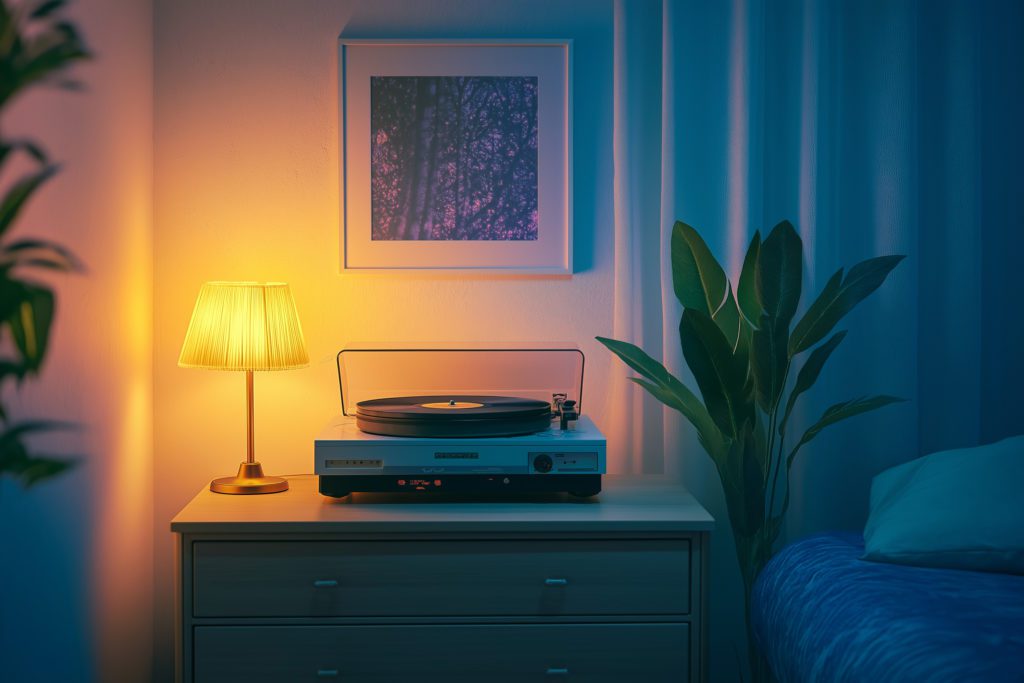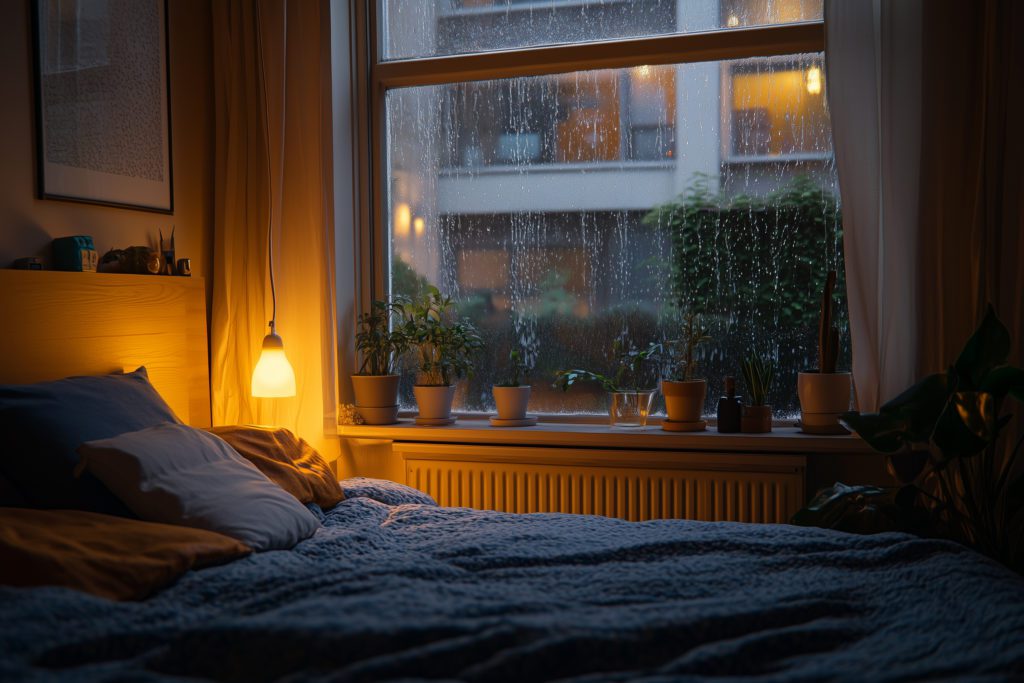
Creating the Perfect Evening Routine to Combat Stress and Improve Sleep
Having an evening routine can reduce your stress levels and improve sleep. Explore three key habits to implement before bed to make a perfect routine.

Are your nights comprised of more wakefulness than you want? You’re not alone in this struggle, with 14.5% of adults struggling to fall asleep most or every day.
When the thought of going to bed starts to cause you stress because of the sleeplessness that you know is in store, it may be time to revise your nighttime routine (or initiate one if you haven’t yet). Evening routines not only prepare your mind and body for sleep, but they can also help to reduce your stress levels, improving your mental health.
How Evening Routines Can Set You Up for Nighttime and Daytime Success
There’s a lot of power in the habits that we curate, which makes it all the more important to be intentional in our decisions and fill crucial periods, such as the time before bed, with habits that serve to improve our well-being, not drain it.
Your evening routine can play a large role in how well you sleep at night, not just in your sleep duration but also in the quality of sleep that you receive. This can then impact how your days go since poorer sleep quality can lead to daytime drowsiness, a poor mood, declining productivity, and a greater likelihood of clumsiness and accidents.
With how crucial our sleep is to our well-being, health, and quality of life, this time before bed is critical in setting the stage—your habits may even have the capability to make or break your sleep before you even attempt to close your eyes for the night.
Certain habits can help promote sleepiness, making it easier to fall asleep. Conversely, other habits and intrusions can keep you awake, cause a rise in stress levels, or suppress your body’s production of melatonin, a sleepiness hormone. Even more, some habits may be fine when completed during the day, but within the hour or so before bed, they become a weight on your well-being.
It’s not just that an evening routine can help you fall asleep, either; taking certain steps and adding in specific interventions can help to lower your stress levels, which is one factor that can otherwise cause insomnia.
The key to achieving this, though, lies in the purposeful construction of an evening routine.
How To Create the Perfect Evening Routine
Your evening routine should consist of more than putting on pajamas or brushing your teeth—while these tasks are important, there’s more to consider in order to sleep better at night.
Everything from preparing for tomorrow to setting the mood can make your evening routine the perfect end to your day. Here are the three key areas to incorporate into your evening routine:
Prepare for Tomorrow
When it comes to having fewer stresses as you fall asleep, one of the most helpful things that you can do is prepare for the next day the night before. This way, when you lie in bed, you don’t have to worry about your mind ping-ponging around all the things you need to do when you wake up because you’ve already handled some of these tasks. You also get to go to bed knowing that your morning will be less rushed, which can further reduce any anxiety you may be feeling.
As for how to prepare for tomorrow, here are some things you can do:
- Set aside an outfit.
- Have your lunch prepared.
- Gather your essentials (e.g., purse, keys, wallet, sunglasses) in one spot.
- Make a to-do list
Wind Down
Now that you’re ready for the next day, fill your time before bed with some wind-down activities to calm your mind and body. Completing these calming activities before bed helps your body transition to sleep mode instead of attempting to go straight from hyper-activity to sleep.
Given the importance of relaxing before bed, it’s best to avoid exercising in the evening hours, as high-intensity exercise too close to bedtime raises both your heart rate and body temperature, which are the opposite of what your body needs to fall asleep. However, that’s not to say that you should avoid exercising entirely—exercise can improve your sleep, but keep it to the morning or afternoon. If evening is the only time you can exercise, avoid high-intensity exercise and opt for light or moderate activity instead, such as walking, stretching, or yoga.
There’s one other thing to avoid during your evening routine: electronics. They produce blue light, which can suppress your melatonin production and keep you from falling asleep. So, when bedtime approaches, put aside your electronics and opt for other activities to fill your time.
Some screen-free activities that can help you wind down before bed include:
- Meditation
- Playing calming music
- Engaging in a screen-free hobby, such as crafting, putting together a puzzle, reading, drawing/coloring, or building models.
- Spending time with your partner or family
- Having an evening hygiene routine (e.g., showering, washing your face, brushing your teeth)
Set the Mood for Bed
Bedtime may be here, but your evening routine isn’t quite over yet—there are some steps you can take to make your bedroom sleep-ready.
For instance, aromatherapy can be a powerful cue for sleep, especially when you use sleep-promoting scents such as lavender. In this same manner, light is used to regulate our circadian rhythm, with the disappearance of bright light setting sleepiness in motion. To support this biological reaction, opt for dim lights in the evening, such as a table lamp instead of an overhead light.
Your bedding, as well, can set the mood for bed. Ensure your bedding is comfortable and inviting so that you look forward to crawling into bed. If you need to, change your bedding based on the season, opting for lighter blankets in the summer and warmer options in the winter. Light layers are advantageous, as well, since they allow you to quickly adjust your coverage based on the temperature of your bedroom.
Finally, ensure that you can fall and stay asleep by using non-distracting noises, such as a fan, colored noises, or nature sounds. You can use a sound machine or browse Pillow’s sound library to help you find a soothing sound to drift off to sleep with. Not only can these sounds promote relaxation, but they also cover any outside sounds that may otherwise wake you up.
Set Up Your Night for Success
Some nights, sleep may seem impossible to come by. With racing thoughts, tossing and turning, and sleepiness that always seems just out of reach, it’s no wonder why falling asleep can be difficult. However, an evening routine can be your key to unlocking better sleep.
By adopting habits that reduce your stress, wind your body down, and make your bedroom an ideal sleeping environment, you can see an improvement in your sleep duration and quality, making bedtime a time you look forward to instead of one you dread.

Written by
Jessica G
Medical writer freelancer who has written hundreds of articles on varying topics. Masters of Engineering degree in Biomedical Engineering.
Download Pillow
Get help
Press & News
Legal
Connect
X (Twitter)
Company
Copyright © Neybox Digital Ltd.


